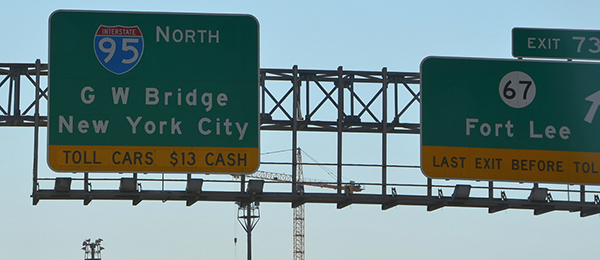NEWSLETTER
|
Cleaning up After Bridgegate
In the first opinion piece, “After Bridge Scandal, Port Authority Needs Cleaning Up”, we note that the Port Authority “was designed to substitute for the warring, politically driven interests of state fiefdoms that frequently get in the way of sound, regional decisions…. Instead, it has often fallen short in the implementation…not due to a lack of talented and dedicated professionals but to the politicization of the agency.
“Given the absence of transparency, it does appear to be operating outside of democratic checks and balances and to be conforming to the norms and values of political culture – its decision-making caught up in the politics of the states….”
We recommend that the governors and legislative leaders of both states appoint a blue-ribbon group of respected citizens from both states to lay out an agenda for reform that needs to include the following propositions:
conduct business in an open and transparent fashion, minimize political abuse and undertake the essential changes in structure, functions and appointments so that the agency can work efficiently and effectively.
“In the end,” we write, “it’s clear there is no substitute for people of ability and integrity who are willing to devote their time and energy to the professional work of the Port Authority and are committed to its effective functioning.
“Governors have an obligation to see that allegiance to them is not the sole or even the primary condition for their appointment. Authorities, after all, are set up to serve the public interest.”
The second column, “The Port Authority of New York and New Jersey Must Learn to Work as One for the Good of the Region”, focuses on the broader issue of regional economic development and the Port Authority as a driver of that development.
“A reformed Port Authority,” we write, “is essential to a regional economy, one that seeks to be globally competitive. But both states need to work together to remove the barriers that prevent co-operation. This includes re-thinking incentives the states currently offer, such as costly and ill-considered business subsidies and tax abatements to attract (and retain) tax ratables and jobs. These programs drive up costs and reduce revenues and, by most accounts, don’t do what they seek to do.”
We also stress that the Port Authority is “in a unique position to approach the region as a whole and to promote collaboration between the states. A strategic regional perspective that includes investment in public services and transportation infrastructure and boosts innovation through creative investments is essential for the region’s economic growth and development, and, indeed, its quality of life….
“In short, the Port Authority needs to return to its original mission. And the states need to create and reinforce regional strategies, recognizing that the region rises or falls as a single entity. To ensure a better future, then, the bi-state region needs to see more, not less, co-operation. And one reformed and robust bi-state Port Authority must be at the center of that reality.”
|


